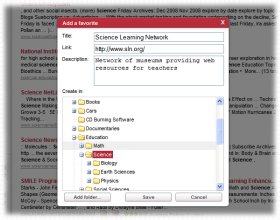|
Education
Web
Viewing 1-3 of 3 total results
in their understand ing and analysis of text. Many students need encouragement and structures to read independently outside class so that they can strengthen all aspects of their reading development (Baker, Gersten, and Grossen 2002). Students with diagnosed needs in word ...
1
0
in their understand ing and analysis of text. Many students need encouragement and structures to read independently outside class so that they can strengthen all aspects of their reading development (Baker, Gersten, and Grossen 2002). Students with diagnosed needs in word recognition and fluency will require the most intensive interventions in grades four through eight (Bos and Vaughn 2002; Foorman and Torgesen 2001). However, teachers in self-contained class rooms and content areas can assist in a
124
0
http://www.cde.ca.gov/re/pn/fd/documents/rlafw.pdf#page=124
www.cde.ca.gov/re/pn/fd/documents/rlafw.pdf#page=124
in their understand­ ing and <span class="highlight">analysis</span> <span class="highlight">of</span> text. Many students need encouragement and structures to read independently outside class so that they can strengthen all aspects <span class="highlight">of</span> their reading development (Baker, Gersten, and Grossen 2002). Students with diagnosed needs in word <span class="highlight">recognition</span> and fluency will require the most intensive interventions in grades four through eight (Bos and Vaughn 2002; Foorman and Torgesen 2001). However, teachers in self-contained class­ rooms and content areas can assist in a
that all knowledge can be categorized under three domains: declarative, procedural, and contextual: 1. Declarative knowledge is information, including facts, events, concepts, and principles, that the learner needs to know, not what the learner needs to do. Declarative knowledge requires an u...
1
0
that all knowledge can be categorized under three domains: declarative, procedural, and contextual: 1. Declarative knowledge is information, including facts, events, concepts, and principles, that the learner needs to know, not what the learner needs to do. Declarative knowledge requires an understanding of component parts. For example, mastery of the standard “understand the concept of profit margin” requires the foundational understanding of what profit margin is built on: variable and fixed costs
12
0
http://www.cde.ca.gov/re/pn/fd/documents/cteframework.pdf#page=12
www.cde.ca.gov/re/pn/fd/documents/cteframework.pdf#page=12
that all knowledge can be categorized under three domains: declarative, procedural, and contextual: 1. Declarative knowledge is <span class="highlight">information</span>, including facts, events, concepts, and principles, that the learner needs to know, not what the learner needs to do. Declarative knowledge requires an understanding <span class="highlight">of</span> <span class="highlight">component</span> parts. <span class="highlight">For</span> example, mastery <span class="highlight">of</span> the standard “understand the concept <span class="highlight">of</span> profit margin” requires the foundational understanding <span class="highlight">of</span> what profit margin is built on: variable and fixed costs
READING Literary Response and Analysis For English learners to improve their English skills and reduce the likelihood that those skills will level off before the students reach fluency, they need to learn academic content along with language skills. Instruc tion in academic areas...
1
0
READING Literary Response and Analysis For English learners to improve their English skills and reduce the likelihood that those skills will level off before the students reach fluency, they need to learn academic content along with language skills. Instruc tion in academic areas, such as literature, mathematics, geography, history, govern ment, and science, not only familiarizes learners with the content of the discipline, but also, what is more important, teaches them how to use the language
63
0
http://www.cde.ca.gov/re/pn/fd/documents/englangdev-stnd.pdf#page=63
www.cde.ca.gov/re/pn/fd/documents/englangdev-stnd.pdf#page=63
READING Literary Response and <span class="highlight">Analysis</span> <span class="highlight">For</span> English learners to improve their English skills and reduce the likelihood that those skills will level off before the students reach fluency, they need to learn academic content along with language skills. Instruc­ tion in academic areas, such as literature, mathematics, geography, history, govern­ ment, and science, not only familiarizes learners with the content <span class="highlight">of</span> the discipline, but also, what is more important, teaches them how to use the language
|
